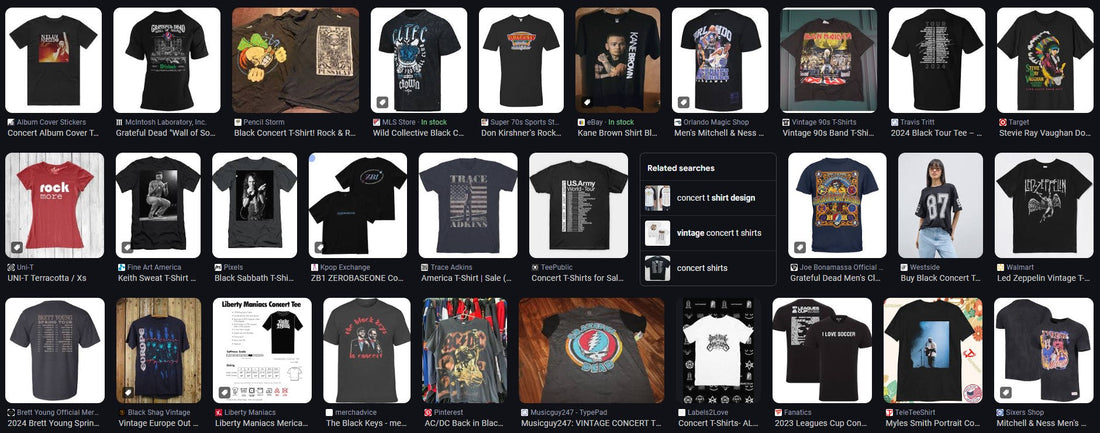
Chapter 2: Black T-Shirts in Popular Culture: From Rebels to Rock Stars
Share
The black T-shirt is more than just a piece of clothing—it’s a cultural statement. In our last post, we explored its origins in workwear and counterculture. Now, in Chapter 2: Black T-Shirts in Popular Culture, we dive into the moments that solidified this iconic piece in music, film, and underground movements. From Hollywood’s biggest rebels to the rise of rock ‘n’ roll, let’s uncover how the black T-shirt became a symbol of defiance and individuality.
Hollywood Rebels: The Black T-Shirt on the Big Screen
The black T-shirt’s journey into pop culture started in Hollywood. While the white T-shirt became an instant icon thanks to Marlon Brando in A Streetcar Named Desire (1951) and James Dean in Rebel Without a Cause (1955), it wasn’t long before the black T-shirt followed.
Actors like Steve McQueen and Clint Eastwood adopted the look, bringing rugged masculinity and effortless cool to the big screen. Later, antiheroes in films like The Terminator (1984) and The Crow (1994) reinforced the black T-shirt’s association with mystery, rebellion, and power.
📌 Related Read: The Evolution of the Movie Rebel Look
The Black T-Shirt in Rock ‘n’ Roll
If Hollywood introduced the black T-shirt to audiences, rock ‘n’ roll made it an anthem.
The Early Years: Elvis & The Beatles
In the 1950s and 1960s, musicians began using fashion to differentiate themselves. Elvis Presley, known for his slick, rebellious style, was often seen in fitted black clothing. The Beatles, in their later years, ditched the suits for black T-shirts and leather jackets, signaling their shift from boy band to rock legends.
Punk & Metal: The Ultimate Uniform
By the 1970s and 1980s, punk bands like The Ramones and The Clash fully embraced the black T-shirt as a statement of nonconformity. Meanwhile, metal bands like Black Sabbath and Metallica turned it into a badge of identity.
Band merch exploded, with black T-shirts becoming the go-to canvas for tour shirts and fan expression. The trend continues today, with vintage and modern band tees remaining some of the most sought-after pieces in street fashion.
🎸 Shop Band-Inspired Tees: Grafpunk Pop Art Shirts
🔗 More on Rock Fashion: How Music Shaped Fashion
The Black T-Shirt & Streetwear Culture
By the 1990s and 2000s, streetwear brands like Supreme, Stüssy, and A Bathing Ape (BAPE) began incorporating the black T-shirt into their collections. The aesthetic was minimalist yet bold—often featuring small logos or striking graphics. Hip-hop artists like Tupac and Jay-Z helped push the black T-shirt into everyday streetwear, blending luxury and casual fashion.
Today, designers from Yohji Yamamoto to Virgil Abloh have reimagined the black T-shirt, proving that this simple garment will always evolve while maintaining its cultural edge.
🛒 Get the Look: Grafpunk Streetwear Collection
What’s Next?
The black T-shirt had solidified itself as a must-have in music, movies, and fashion. But its evolution didn’t stop there. In Chapter 3: The Black T-Shirt in Subcultures, we’ll dive into how punk, goth, and graffiti movements turned it into a symbol of artistic expression and political resistance. Stay tuned!
📌 Catch Up on Previous Chapters:
🔗 Origins of the Black T-Shirt
